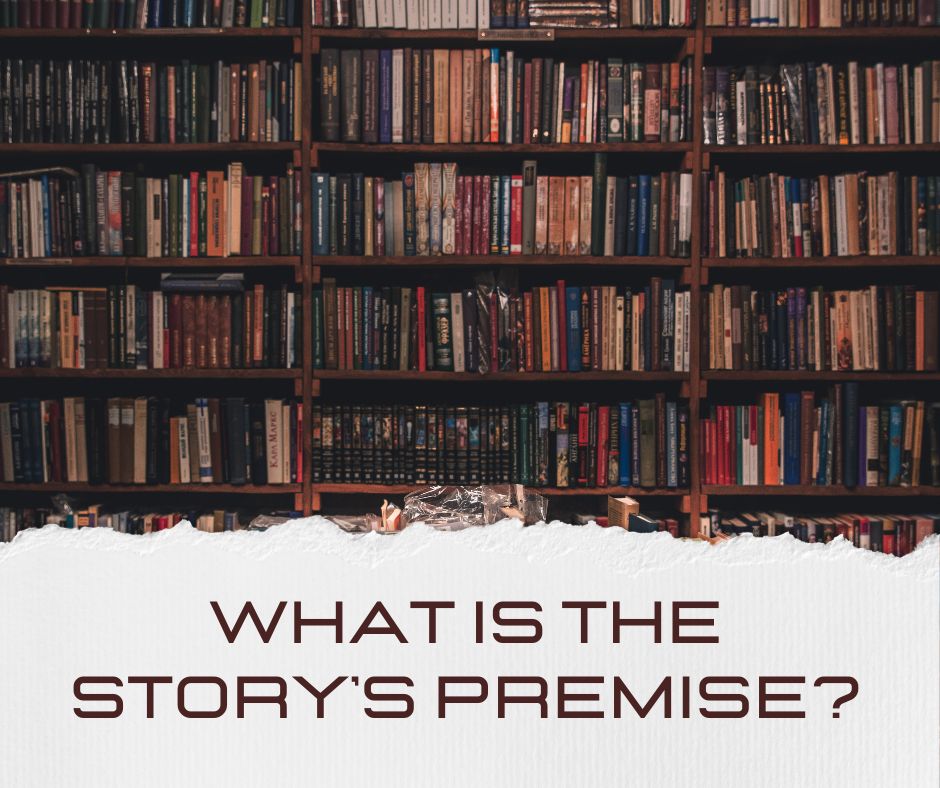Many authors struggle with the idea of a premise. They want to write something original and unique but need to figure out where to start. In this article, I’ll explain what a story premise is and how you can find one for your next project. We’ll also look at some examples of good premises to help illustrate how simple and effective these things can be.
1. A premise is the basic underlying idea.
A premise is an underlying idea for a story, play, film, or other work. It is usually stated in the form of a single sentence. The premise generally sets out what the story will be about and why it should be read or seen.
2. The premise defines your narrative’s unique core.
You’ve written a great story. But what is it? How does your protagonist achieve her goal and overcome the main problem?
A strong premise is essential for creating a compelling narrative because it defines the story and how it fits into the world. It also helps you understand where your story fits in relation to other stories that have been done before.
3. A story is defined by its protagonist’s relationship with this central theme.
A story is defined by its protagonist’s relationship with this central theme and how they contribute to its resolution. The central theme of a story is the underlying idea that drives each episode.
It’s the reason we’re interested in reading or watching it in the first place. It makes us want to learn more about it, understand it better, and experience something new.
The protagonist plays an integral role in this process because they define our understanding of what happened throughout time and how we feel about those events now.
4. The single sentence forms the foundation of everything that follows.
The premise is the foundation of your story. It’s the central idea that everything else in the story is built upon and should be stated in one simple sentence.
A good example would be, “I want to buy this house.” This statement doesn’t tell us anything about what happened before or after it was spoken. Still, it does give us a clear picture of what our protagonist wants and needs right now—a house!
In other words, the premise contains all the necessary information for readers to understand what’s going on with your plot from beginning to end (or at least as far as you plan on going).
5. Communicate the essence of your story and what it’s about.
Your story premise should be clear and concise. It should be interesting, unique, and memorable. The main purpose of your story premise is to communicate the essence of your story and what it’s about.
It can also serve as a foundation for your novel or screenplay. If you still need one, start by writing down all the elements that make up successful narrative events, characters, and conflicts, then compare them to what you’ve planned for your first draft. This exercise will help guide how much work goes into creating each part of your narrative structure later.
6. Sum up your story’s main idea in one sentence or less.
As you write your premise, consider whether you can summarize your story’s main idea in one sentence or less. If so, then you have a good starting point for writing the rest of your outline.
You can use this technique to write out an entire manuscript or even start with an outline for a novel if that helps keep things organized. You could also use a one-sentence premise to work on draft after draft until it becomes clear how much time it would take for each chapter or scene.
However, remember that sometimes this method doesn’t work as well when constructing outlines because there are many different ways to interpret what constitutes “a sentence”.
7. The fundamental truth that your narrative revolves around.
If so, you have most likely identified your story’s overall premise. The fundamental truth that your narrative revolves around. The first step in writing a narrative is to determine this central idea and ensure that it remains consistent throughout the story.
To do this, try writing down what you know about your story. Write down whatever comes to mind, a few lines or paragraphs and ask yourself these questions:
- What is the main point of conflict between the characters?
- What does each side want?
- How do they feel about each other?
- Why should anyone care about their relationship?
- What are some aspects of this conflict that don’t necessarily involve who wins or loses but rather how it affects them both personally?
- Good premises are clear and simple.
A premise is the reason you’re writing your story. It makes your book stand out from other books on the same subject.
It’s best if your premise is clear and simple, so readers can understand it. You want them to know exactly what they’re getting into before they start reading so they can understand and enjoy the story. This also helps you keep track of how long each chapter should be. You’ll know exactly how many pages (or words) should go into each one.
Good premises are easy for people to remember; this means that when someone asks about a particular idea in one of your stories, all those memories about what happened before will come rushing back at once! That makes remembering details easier than ever before. “Because now there aren’t any holes in between where things happen too quickly or suddenly.”
A good premise will be clear, simple, and easy to remember. It should also reveal the unique concept at its heart. As you write your story, keep these principles in mind so that it will be easy for your readers to understand what’s happening in your plot before too long.




